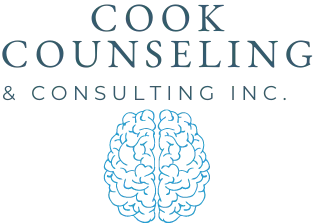The arrival of a newborn is a joyous occasion, a time filled with anticipation and promises of a bright
future. Yet, past the baby coos and celebratory greetings, a silent struggle can unfold for some new
mothers – postpartum anxiety. Unlike the more recognized “baby blues,” postpartum anxiety
lingers, intensifying feelings of worry, fear, and doubt into a debilitating whirlwind.
The Myth of the Perfect New Mom
Society paints a picture-perfect image of motherhood: glowing mothers cradling their newborns,
radiating bliss. This unrealistic portrayal leaves little room for the messy realities of new
motherhood. Sleep deprivation, hormonal fluctuations, and the immense responsibility of caring for
a fragile life can be overwhelming.
Why Does Postpartum Anxiety Go Unnoticed?
Several factors contribute to the silence surrounding postpartum anxiety:
Stigma: The fear of being judged as a weak or inadequate mother prevents many women from
seeking help. They might feel pressure to downplay their struggles to maintain the illusion of a
perfect family life.
Misunderstanding Symptoms: Symptoms of postpartum anxiety can be confused with the normal
emotional rollercoaster of new motherhood. Fatigue, irritability, and difficulty concentrating are
often dismissed as a natural adjustment period.
Focus on the Baby: The baby’s needs often take center stage, leaving little room for addressing the
mother’s well-being. Family and friends might shower the baby with attention, unintentionally
overlooking the mother’s emotional struggles.
Minimization by Medical Professionals: During postpartum checkups, the focus is often on the
baby’s health. Busy healthcare providers might overlook the mother’s emotional state, leading to
missed diagnoses and delayed treatment.
Beyond the “Baby Blues:” Recognizing Postpartum Anxiety
Postpartum anxiety manifests differently for each woman, but some common symptoms include:
● Excessive worry and fear about the baby’s health and safety
● Intrusive thoughts about harming the baby (though rarely acted upon)
● Difficulty sleeping or staying asleep
● Panic attacks
● Irritability and difficulty concentrating
● Feeling overwhelmed and unable to cope
● Difficulty bonding with the baby
Breaking the Silence: Steps Toward Healing
If you suspect you might be experiencing postpartum anxiety, here’s what you can do:
Talk to Your Partner: Seek support from your partner and let them know what you’re going
through. Open communication can alleviate feelings of isolation and allow them to provide practical
and emotional support.
Reach Out to a Friend or Family Member: Confide in a trusted friend or family member who can
offer a listening ear and help you navigate the challenges.
Seek Professional Help: Don’t hesitate to seek professional help from a therapist or counselor
specializing in perinatal mental health. They can provide tools and strategies for managing anxiety
and guide you on your path to healing.
Join a Support Group: Connecting with other mothers who share similar experiences can be
incredibly validating and empowering. Look for online or in-person support groups focused on
postpartum anxiety.
Remember, You’re Not Alone
Postpartum anxiety is a treatable condition. By breaking the silence, seeking help, and receiving the
right support, new mothers can recover and build stronger bonds with their babies.
References
Cleveland Clinic. (n.d.). Postpartum
depression. https://my.clevelandclinic.org/health/diseases/9312-postpartum-depression
Postpartum Support International. (n.d.). Anxiety during pregnancy &
postpartum. https://www.postpartum.net/learn-more/anxiety/

